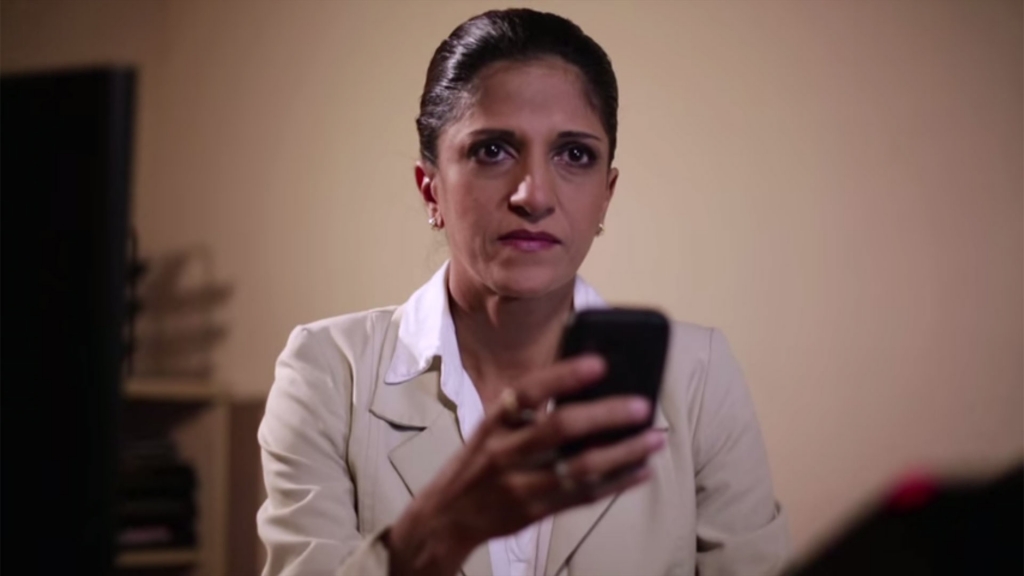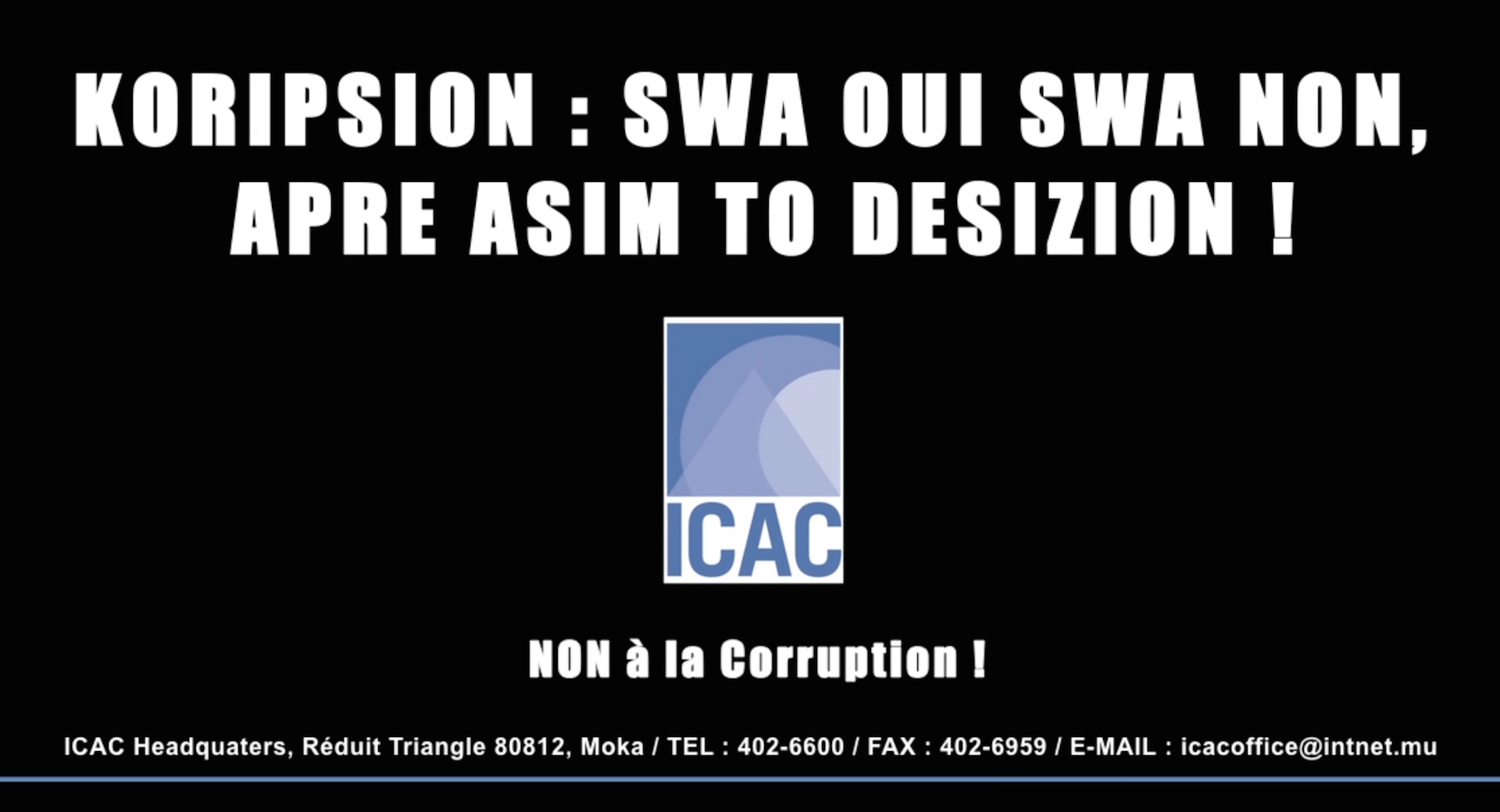ICAC has kick started a media campaign, coinciding with the Commission moving to its new headquarters at Réduit. The tagline of the media campaign reads: “Koripsion : swa oui, swa non. Apre asim to desizion!“, produced by the production company Eruption Studio. This campaign follows extensive debriefing sessions in the aftermath of the National Survey on Corruption published earlier this year, which was discussed in the last issue of the newsletter.
Campaigning for causes, however noble the fight against corruption may be, is not an easy task. Down the years, ICAC has come to realise that members of the public have, unfortunately, become desensitised to messages promoting values such as integrity, honesty and patriotism. Refusing to accept this as a fatality, the Commission is seeking to transform it into opportunity.
As a result, the chosen tagline will no doubt raise a few eyebrows. This is the desired effect sought by ICAC through this campaign, the message being: “either you are part of the problem, or you are part of the solution”, with an underlying message that we are all stakeholders in the fight against corruption and money laundering. Positive feedback from focus groups has led us to validate this campaign.
To explain the rationale behind the conception of this tagline, Jean-Luc Ahnee, managing partner of Eruption Studio provides the following:
La corruption est un choix face auquel chaque citoyen est seul responsable. Face à ce choix, il n’y a pas de demi-mesure ou de compromis possible. Choisir son camp, c’est faire un choix de valeurs, de principes ; en somme, un choix de société entre justice, honnêteté, méritocratie et illégalité, magouille et improbité. Etre avec tous ceux qui, comme l’ICAC, ont choisit de lutter contre ce fléau ou être dans le camp d’en face. Il reviendra ensuite à chacun d’assumer les conséquences de ses actes.
Some viewers may run the risk of misinterpreting some visual messages in the video campaign and point out perceived misrepresentations of reality. ICAC and Eruption Studio have tried conveying the intricacies of corruption offenses and the subsequent investigation in one-minute visual clips. This has not been easy. The more so when such clips are based on fictional representations of what could happen in real life. ICAC would like to bring forward the rationale behind each clip, in the expectation that the wider public appreciates the message.
Clip One: The Race
Enacting a group of children in a competitive environment for a prize, the clip shows how one of them cheats to claim the top spot. While there is obviously no corruption offence involved, the focus of the clip is on values such as honesty and integrity, the main pillars behind a corruption-free generation. ICAC wishes to trigger questions from younger viewers to their parents, who will then explain to the former the relationship between the need for values in a corruption-free society. Also, the Commission hopes adults will realise how these values are intrinsically linked.

Clip Two: The Date
Corruption, cutting corners or “traser” in creole, is neither acceptable nor fashionable. Even the classiest young man, with an impeccable code of conduct in society, can fall prey to temptation and commit an offence. In this clip, while the young man attempts to bribe the traffic warden, the girl chooses otherwise: to leave the young man because of his skewed moral compass. The message in this video is clear: we all have a choice in every situation in life. How people react to these choices will define the society we live in.

Clip Three: The Secretary
Reporting corruption is an obligation for public officials. However, whistleblowers may be afraid of retaliation. This clip showcases a secretary who dares to denounce an act of traffic d’influence. As previously mentioned, all the variables needed to prove such an offence in court could not be covered in the short lapse of this clip. Informed viewers will no doubt notice other issues such as admissibility of evidence etc. ICAC chose to suggest these aspects between the lines. Instead, the focus is on the courage the secretary musters to go ahead and denounce the illegal act and the support of her family in this endeavor, hailing her as a hero after the arrest of the corrupt person.

